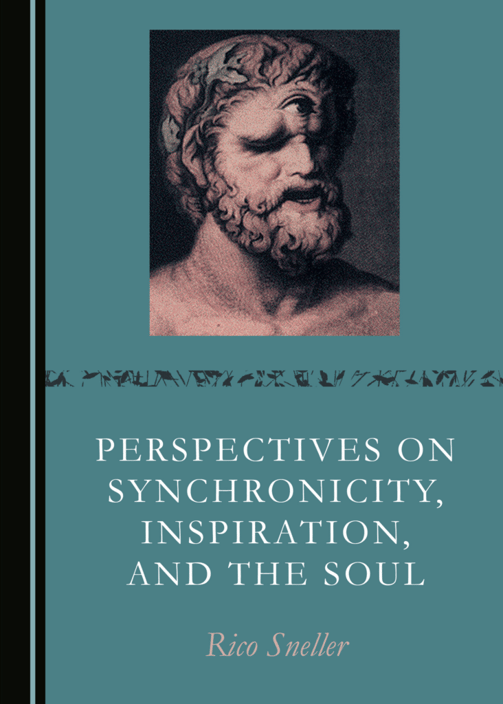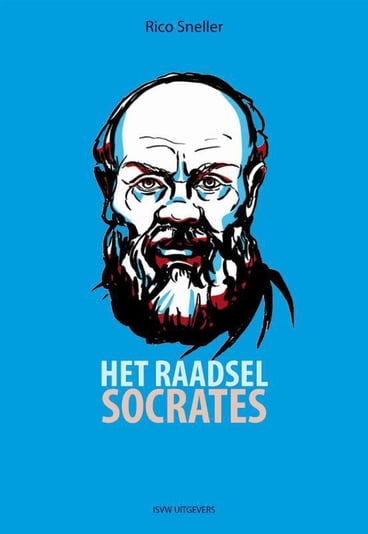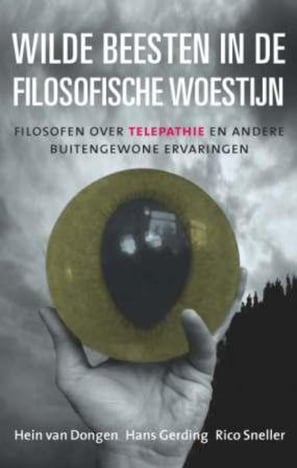Perspectives on Synchronicity, Inspiration and the Soul
This book explores the notion of the human psyche (‘soul’) and its continuing usefulness in the background of the ongoing and always accelerating techno-scientific revolution. The main argument here follows the assumption that this revolution, while not necessarily being a threat to humankind, is often blind or ignorant as to its subject, the ‘human being’.
In the first chapters, the reader is invited to reflect on the notion of ‘thinking’ as a phenomenon of consciousness that transcends merely ‘having thoughts’. Relating thinking to consciousness requires reconsidering the phenomena of ‘inspiration’ and ‘ecstasy’. Provided that such a thing as ‘inspiration’ exists, it makes sense to revise the solipsist or substantialist account often given of the human mind. The book defines inspiration as a ‘clairvoyance of one’s psyche’, and ecstasy as the experience of this clairvoyance.
Next, a case is made for synchronicity experiences as a key to a better understanding of the human psyche. While being enigmatic all throughout, synchronicity experiences, both on the individual and on the collective level, help overcome both subject/object and body/mind dualisms. It is not likely, though, that the solution they could offer will be readily accepted by (what is called) ‘science’ today, since it challenges one of the latter’s basic premises, ‘causality’. As a more concrete example of a condensed synchronicity experience, the author dwells on ‘physiognomy’.
In the final chapter, death and suffering are discussed as extreme, and therefore relevant, experiences of consciousness. The book interprets death in terms of ‘enhanced subliminality’, and ‘suffering’ as unconscious resistance against maturing.
Generally, this book explores a psycho-philosophical tradition, rooted in Romantic thinking (from Schelling and Schopenhauer until Klages and Jung), which has hitherto been unjustly neglected, if not repressed, by mainstream materialism and positivism. It makes a strong case for an intellectual account of the soul.


Het Raadsel Socrates
Bij welke filosofische traditie je ook te rade gaat, overal kom je Socrates tegen. Sommigen noemen hem de vader van de filosofie, anderen zien hem als een leermeester in correct denken of morele moed. Zoveel tradities, zoveel Socratessen. En al die Socratessen zijn nog geloofwaardig ook. Rico Sneller presenteert een geschiedenis van de filosofie aan de hand van alle Socratessen die de filosofische traditie rijk is. Na Xenofons en Aristofanes’ Socrates bespreekt hij de Socrates van Hegel, Kierkegaard, Nietzsche, Strauss en Derrida. We zijn nog lang niet uitgepraat over Socrates. En wie Het raadsel Socrates leest al helemaal niet.


Wilde beesten in de filosofische woestijn
Dit boek is geschikt voor lezers die geïnteresseerd zijn in filosofie en buitengewone ervaringen zoals telepathie en helderziendheid. Wetenschappers nemen 'paranormale ervaringen' nauwelijks serieus. Vroeger was dat anders. Het concept 'paranormaal' bestond niet eens. Voor filosofen als Kant, Schopenhauer en Bergson waren het hooguit bijzondere, intrigerende ervaringen. William James, die uitgebreid studie maakte van spiritistische mediums, noemde ze 'wilde beesten in de filosofische woestijn'. Dit boek maakt duidelijk dat voor veel filosofen - van Kant tot Derrida - omstreden verschijnselen als telepathie en helderziendheid een serieus studieobject vormen. De auteurs bestuderen veelzeggende teksten van filosofen die tot nu toe weinig aandacht kregen. Ze laten zien hoe elk van deze denkers op eigen wijze een serieuze interpretatie probeerde te geven van zulke ervaringen, die op het eerste gezicht ons begrip te boven lijken te gaan.


